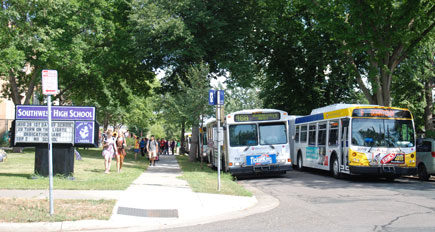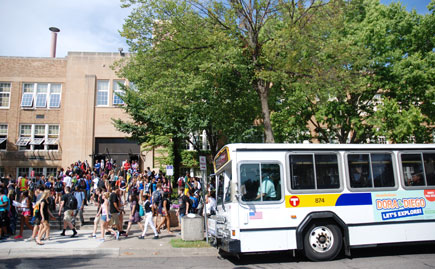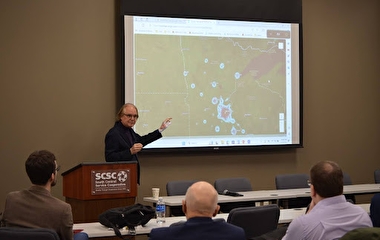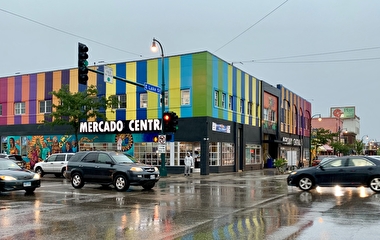In August 2013, all transportation-eligible Minneapolis high school students began using public transportation instead of yellow school buses under the Go-To Student Pass Program. The program, a partnership between Metro Transit and Minneapolis Public Schools (MPS), enables students to take unlimited rides on regular-route buses and light rail from 5 a.m. to 10 p.m. daily during the school year.
A just-released analysis of the program by U of M researchers documents a range of benefits—from better student attendance to financial savings to reduced vehicle mileage and emissions. The analysis was funded by Metro Transit.
“Several other cities across the country have implemented similar cross-sector programs,” says Yingling Fan, associate professor in the Humphrey School of Public Affairs and the principal investigator. “Their experience points to significant benefits, but solid research about the impacts of the approach has been limited.”
”We believed from the beginning that the Student Pass program would benefit students, schools, and Metro Transit,” says Metro Transit general manager Brian Lamb. “We’re pleased to have the data that explain and confirm the benefits.”
For the analysis, Fan and research fellow Kirti Das used existing data from MPS and Metro Transit and collected additional data through surveys completed by more than 2,400 students and about 500 parents during May–July 2015.
Highlights of their findings:
- Educational. The pass not only helps students attend school more regularly—pass users had 23 percent lower absenteeism—it also provides access to after-school learning opportunities at and away from school.
- Economic. Metro Transit ridership increased significantly: by March 2014, 103 additional bus trips were added to accommodate growing ridership, typically increasing service frequency on regular routes. The costs of that extra service were almost entirely made up for by revenue from pass sales. For MPS, financial benefits totaled $1,550,412 in 2013–2014 from reduced contracting and fleet expenditures.
- Transit perception. Of the student pass users, 81 percent reported being “Satisfied” or “Very Satisfied” and 93 percent reported benefiting from the pass. Similarly, 80 percent of the parents reported being “Satisfied” or “Very Satisfied” and 85 percent reported that the pass had benefits for their family.
- Younger rider base. Students using the pass were more likely to report that they would use transit after graduation. This suggests that the program enables Metro Transit to tap into a young rider base and acclimatize them to transit use, increasing their chances of being transit users as adults.
- Safety. A higher percentage of female students reported negative perceptions related to safety while waiting for buses/trains at stops, walking to or from bus/train stops, and traveling on buses/trains compared to male students. Metro Transit and MPS are meeting to discuss these perceptions and consider potential solutions.
- Mileage. Annual reductions were estimated at 18,304 trips and 158,400 vehicle-miles traveled (VMT) from replacing yellow buses and 2,038,784 VMT from personal vehicles.
- Emissions. Estimated annual emissions were 93 percent lower for nitrogen oxide, 89 percent for particulate matter, and 59 percent for CO2.
- Equity. Reported benefits and level of ridership were most pronounced for students eligible for free/reduced lunch and those who were black, foreign-born, or belonged to single-parent families.
After expanding the program in 2015—including a Summer Student Pass pilot—Student Pass ridership increased 12.5 percent from 2014 to nearly 4 million rides. Metro Transit continues to consider opportunities to expand the program in the future.




